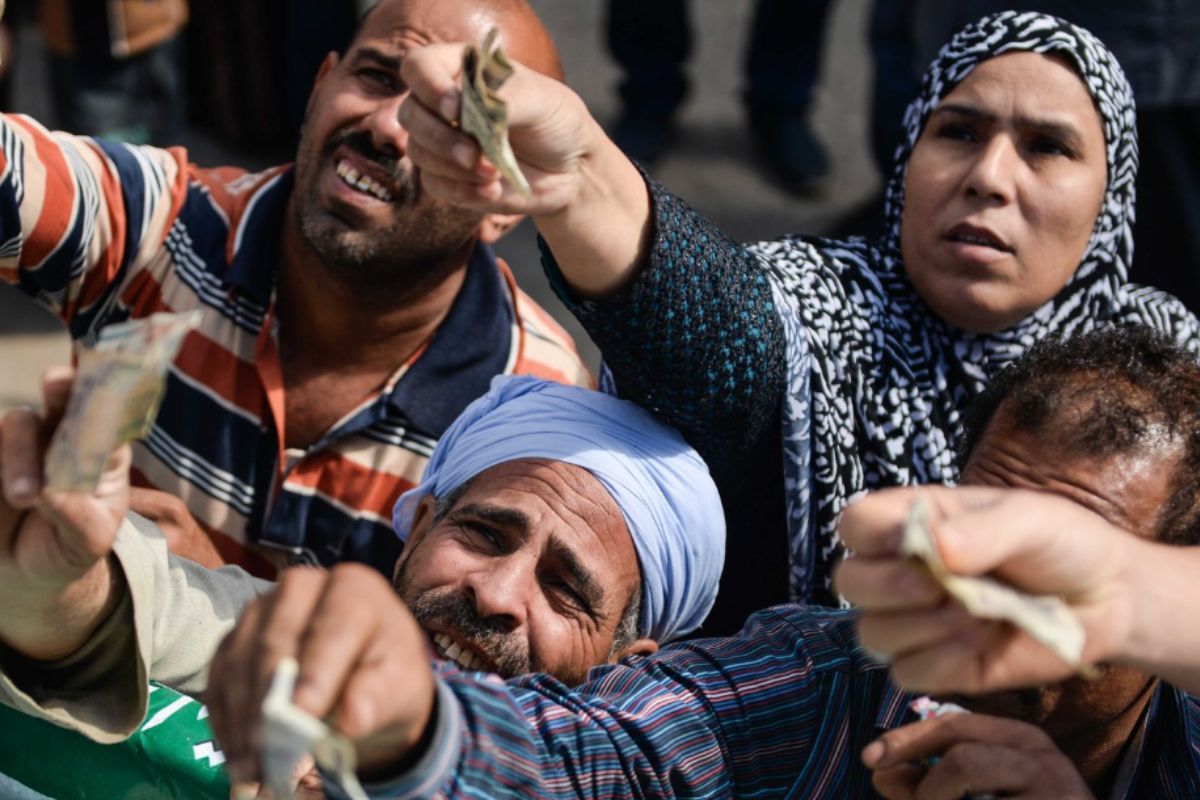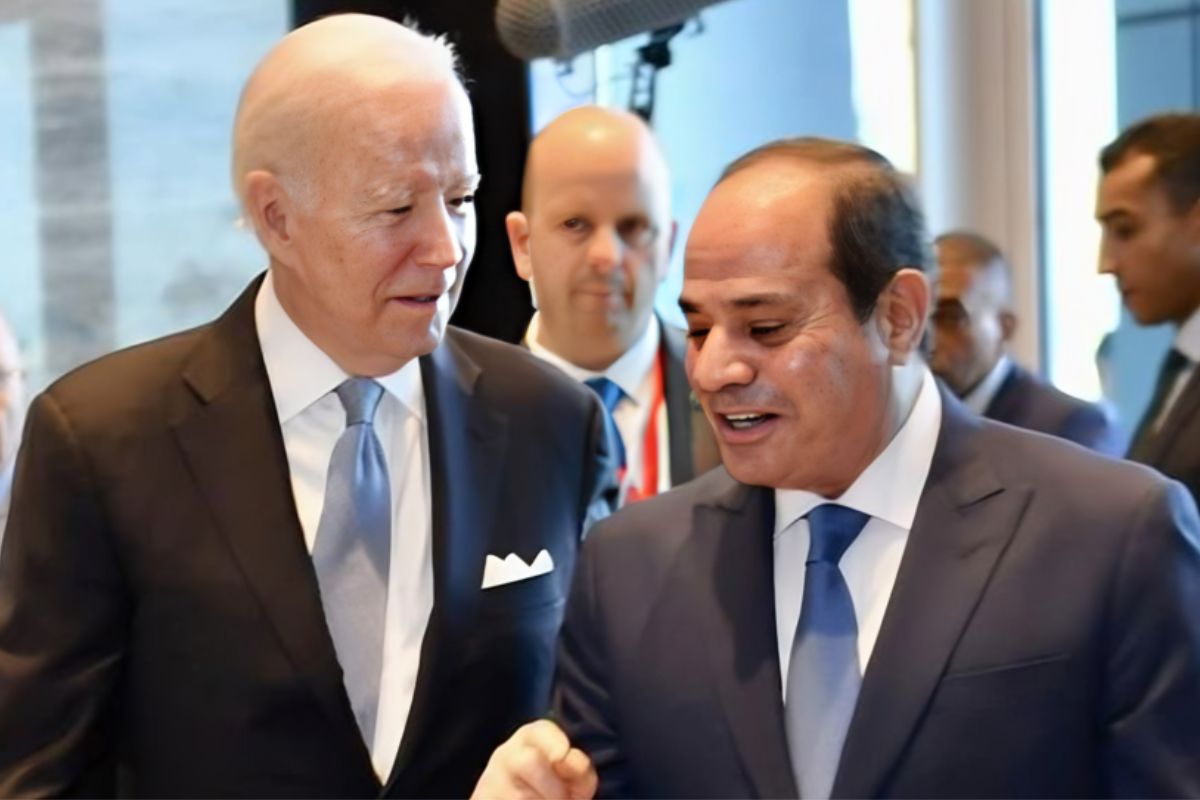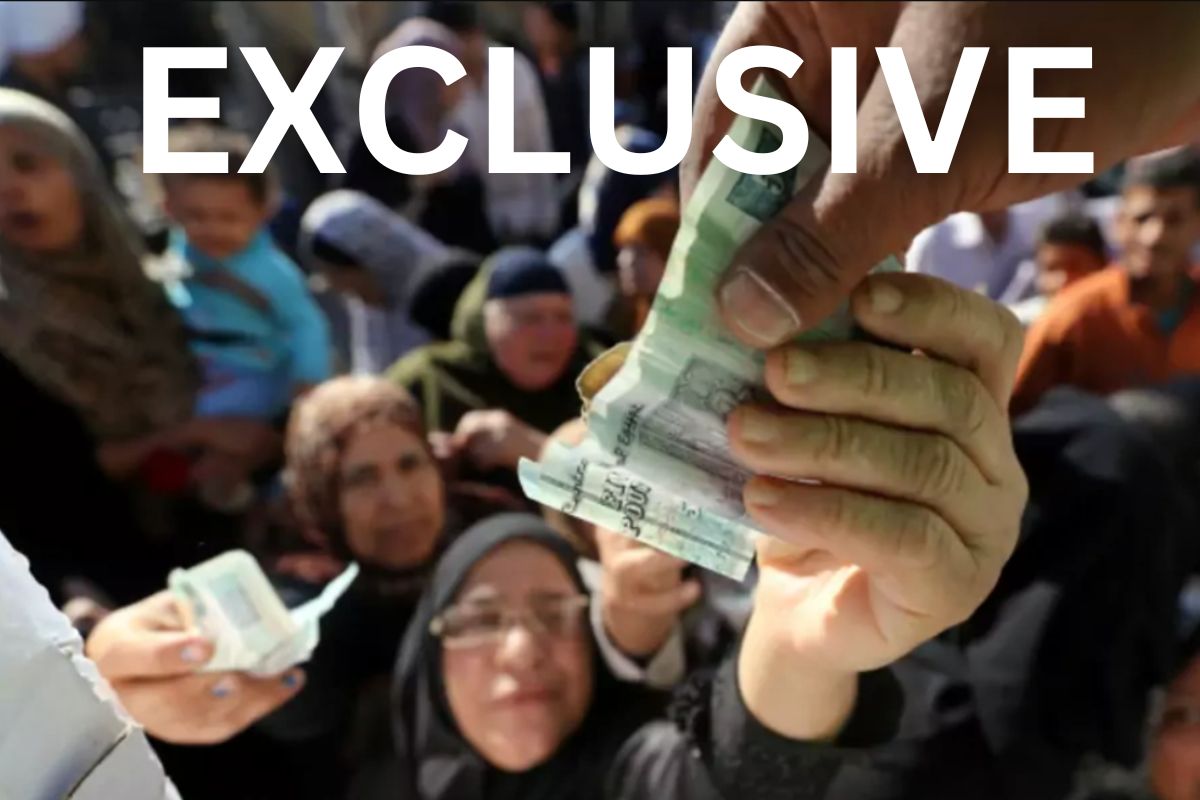NEW DELHI: The BRICS group, a crucial platform for emerging markets and developing nations, has formally embraced five additional members: Egypt, Iran, Saudi Arabia, Ethiopia, and the UAE. Their inclusion became effective on January 1, 2024, signifying a noteworthy expansion for the coalition initially established by Brazil, Russia, India, China, and South Africa. This expansion follows multiple membership appeals in recent years, underscoring the increasing significance and sway of the BRICS group. The Johannesburg Summit in August 2023 officially invited the five new members to join, acknowledging their economic potential and strategic importance in their respective regions.
During an exclusive interview with The New Indian, Amr Adly, Assistant Professor of Political Science at the American University in Cairo and author of ‘Cleft Capitalism: The Social Origins of Failed Market Making in Egypt,’ discussed Egypt’s economic hurdles, its reliance on the US dollar and how joining BRICS might influence its relationship with the West.
Egypt’s Stumbling Economy:

The Egyptian pound is experiencing a rapid decline, having depreciated by 50 per cent against the dollar since March 2022. A scarcity of currency is evident, exacerbated by the escalating costs of imported commodities, notably wheat. The nation burdened with substantial debt, being the primary recipient of funds from the International Monetary Fund (IMF), is teetering on the edge of default. A significant portion, 40 per cent, of Egypt’s budget is allocated to servicing its debt. The much-needed $3 billion loan from the IMF is facing delays due to the government’s reluctance to enact necessary reforms.
Discussing Egypt’s potential benefits and challenges of joining the BRICS, amid economic turmoil, Adly said, “Due to Egypt’s current economic challenges, the debate over joining BRICS has intensified. The country faces issues such as a weakened economy, increased interest rates on the dollar, and a substantial external debt. Joining BRICS, which includes the biggest countries in the Global South and some of the biggest economies in the world, is viewed strategically as a means for Egypt, a lower-middle-income nation with significant development needs, to diversify partnerships and institutional commitments. However, the direct impact of BRICS membership on addressing immediate economic challenges remains uncertain, as the country grapples with financial instability and signs of an economic slowdown.”
Also Read: Sworn enemies Egypt-Iran unlikely to collaborate within BRICS: Cairo expert
While the prospect of joining BRICS holds economic promise for numerous governments, the inclusion of new member states has been filled with controversy. In Egypt, the announcement of the country’s entry into this alliance sparked a vigorous internal media discussion regarding the viability of the decision and its potential effects on Egypt’s worsening economic conditions.
Media aligned with the government has amplified the significance of the choice, presenting it as a cure-all for Egypt’s economic woes. It asserts that joining BRICS will break Western economic dominance, alleviate escalating inflation, and diminish dependence on the dollar.
However, media associated with the opposition has undermined and mocked Egypt’s entry into BRICS, dismissing it as a fruitless pursuit for a nation grappling with substantial economic difficulties and a trade deficit with all existing BRICS members.
Shedding light on the accuracy of these contrasting views and what factors should be considered in evaluating the impact of Egypt’s economy, the professor explained, “I don’t think it’s a futile endeavour. It’s something that adds prestige to a middle power like Egypt within the international global system.
Also Read: Sweden braces for unthinkable as Russian storm gathers on horizon
“Of course, you need to bear in mind that unlike Saudi Arabia and the Emirates, which are major oil producers and huge exporters of finance, the admission of countries like Egypt, Iran, and Ethiopia to BRICS is not just economic. It has its own geopolitical connotations as well.
“Egypt plays a central role in China’s Belt and Road Initiative. It’s one of the biggest partners that China has in the region. So, we have strong relations with the EU, the US, and it cannot hurt to have good ties with the Chinese as well. Therefore, joining BRICS could help Egypt diversify its investments. Nonetheless, the long-term success is dependent on BRICS coherence and its impact on global governance.
Egypt’s BRICS Membership: Threat To Ties With West?

For almost 50 years, Egyptian policy has heavily relied on Washington’s favour. The strategic shift by former Egyptian President Anwar Sadat, transitioning from Soviet allegiance to embracing the US, making peace with Israel, and adopting domestic policies like Infitah (openness, departing from state socialism), marked a significant break with Moscow, a longstanding ally.
However, since assuming office in 2014, Egyptian President Abdel Fattah El-Sisi has spared no effort in cultivating a strong alliance with Moscow. This strategic approach serves various purposes, including maintaining a balance in Egypt’s foreign relations and capitalising on Russia’s growing influence in the Middle East.
Now, after enduring years of political unrest and economic challenges, Egypt is reconstructing itself to foster economic expansion, technological advancements, and attracting global investments through its association with the BRICS alliance.
Also Read: Why Egypt chose BRICS over individual bilaterals? Cairo expert explains | EXCLUSIVE
Analysing the BRICS membership’s impact on Egypt’s relationship with its traditional Western allies, Adly said, “For a middle power like Egypt, revisiting Cold War dynamics is a dream come true. So, is Egypt going to sever ties with the US? No, it will never do that. But Egypt has moved away from the US over the past 10 years. It has diversified its military imports to include more European and Russian producers.
“Take India for instance; it maintains strong relations with Russia despite being a competitor of China. While economically close to China, India also navigates its own considerations concerning the West. So, that applies pretty much to a middle power like Egypt, which seeks a more significant role in BRICS without necessarily jeopardising its current relations with the EU and the US.”
Can BRICS Create Alternative To US Currency?

Egypt is currently grappling with an economic downturn, leading to a shortage of US dollars and other strong currencies in the market. The period from 2020 to 2022 saw a detrimental impact on Egypt’s two primary foreign currency generators—tourism and the oil and gas sector—due to the COVID-19 pandemic. Although these sectors showed signs of recovery in 2022, they struggled in 2023 to reach their pre-pandemic revenue levels.
The ongoing conflict between Russia and Ukraine further exacerbated challenges for Egypt’s tourism and disrupted commodity prices, particularly for essential items like wheat, crucial for feeding Egypt’s population exceeding 100 million. Furthermore, the Israel-Gaza conflict has led to higher energy costs for Egypt and disrupted maritime routes from the Red Sea to the Arabian Sea and the Indian Ocean, impacting Suez Canal revenues.
Deliberating whether BRICS membership could reduce Egypt’s reliance on the US dollar and inflation, Adly stated, “Yes, in principle, diversifying financial channels through initiatives like BRICS is feasible. But how developed are the alternative financial channels? Within BRICS, there has been this push towards institutionalisation in the past years that resulted in the creation of the New Development Bank and the Contingent Reserve Arrangement, which was meant to replace partly or fully the International Monetary Fund (IMF).
Also Read: Dangers of downplaying Houthi menace in Red Sea
“But challenges arose due to the limited development of these alternative financial institutions within BRICS. These limitations stem from issues with institutionalising cooperation within the informal economic grouping of BRICS. While Egypt has access to Chinese financing through banks and institutions like the Asian Infrastructure Investment Bank (AIIB), the question ‘in which currency will this take place’ arises.
“The use of local currencies has limitations, and creating an alternative currency to the US within BRICS seems doubtful in the next few decades. While having more patrons may improve global credit access terms, it is important to be careful, as other African countries like Zambia and Kenya have faced challenges with shifting debt dependence from the West to China. Recent developments, such as Ethiopia’s struggles with servicing debt to China, underscore the need for careful assessment.
“The debate in Egypt is influenced by historical vulnerabilities to the West, rooted in colonialism and imperialism. Therefore, making a shift away from the West looks inherently appealing. However, power asymmetries similar to those experienced by South Africa and other nations may tie Egypt closely to China, making careful consideration of the terms of such a shift, necessary.”











